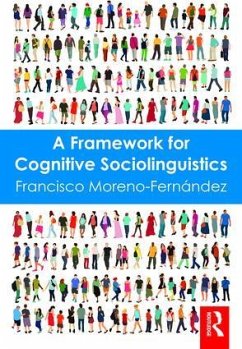A Framework for Cognitive Sociolinguistics attempts to lay out the epistemological system for a cognitive sociolinguistics the first book to do so in the English language. The intention of this volume is not to provide a simple catalogue of sociolinguistic principles or of theoretical postulates of a cognitive nature, but rather aims to build a verifiable metatheoretical basis for cognitive sociolinguistics. This book is articulated through a series of propositions, accompanied by annotations and commentaries that develop, qualify and exemplify these propositions. As for the research questions that would be central to a cognitive sociolinguistic endeavor, the following incomplete catalog could be enumerated: What do speakers know about their language? What do they know about communicative interaction? What do speakers know about sociolinguistic variation? Where does that knowledge reside and how is it configured? How does social reality influence the origin and processing of language? How does language use affect the configuration, evolution and variation of language? What do speakers know about their socio-communicative context? How do speakers perceive sociolinguistic reality? What are speakers attitudes and beliefs regarding linguistic variation? How does sociolinguistic perception influence speakers communicative behavior at all levels? How does language contribute to the construction of identity?Offering a fresh perspective on the frequently taught and studied topic of cognitive linguistics, A Framework for Cognitive Sociolinguistics can easily be incorporated into existing courses in the areas of both cognitive and sociocultural linguistics.








